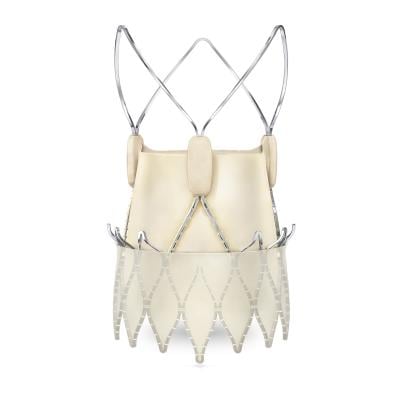
December 2, 2022 — Boston Scientific Corporation has announced the first results from the ACURATE neo2 Post Market Clinical Follow-up (PMCF) study evaluating the performance of the ACURATE neo2TM Aortic Valve System. The findings, which included a high procedural success rate of 98.4% and low rates of mortality and paravalvular leak (PVL), were presented during a late-breaking clinical trial session at PCR London Valves 2022 and published simultaneously in EuroIntervention.
In this European study, the primary safety endpoint of all-cause mortality was 0.8% at 30 days. The data also demonstrated that no patients experienced greater than moderate PVL, 1.9% experienced moderate PVL and 18.9% experienced mild PVL. Other notable findings from the study included a low 6.5% rate of new pacemaker implantation 30 days post procedure, with no incidence of disabling stroke or acute kidney injury.
"With this foundational data set, we now have post-market surveillance results that validate the use of the current-generation ACURATE neo2 valve for the management of patients with severe aortic stenosis," said Dr. Lars Søndergaard, professor of cardiology, DMSc, FESC, Department of Cardiology, Rigshospitalet and study co-principal investigator. "The data suggest that the annular sealing technology minimizes leakage around the valve – providing greater improvement in PVL than observed with the prior-generation ACURATE neo valve – all while maintaining single-digit permanent pacemaker rates, which contributes to better long-term patient outcomes."
The single-arm, prospective ACURATE neo2 PMCF study includes 250 patients with severe aortic stenosis from 18 European centers and will evaluate outcomes for five years following the procedure. It also includes a primary imaging endpoint to assess the visually apparent thickening of the prosthetic valve leaflets (HALT), a phenomenon with theoretical potential effects on valve durability or thrombotic complications. The reported HALT rate of 24.5% at 30 days post procedure falls within the range presented in previous TAVR trials with competitive devices.
"These trial data confirm the success of meaningful and differentiated enhancements included in the design of the ACURATE neo2 valve, from low rates of PVL and first-time pacemaker implantation to excellent hemodynamic performance and high rates of procedural success and safety," said Dr. Ian Meredith, global chief medical officer, Boston Scientific. "We look forward to reviewing longer-term results from this trial and bringing this differentiated TAVR technology to more patients and their physicians."
The ACURATE neo2 Aortic Valve System received CE Mark in 2020 and is being evaluated in the currently enrolling ACURATE IDE trial in the U.S. and Canada.
For more information: www.bostonscientific.com.eu/acurateneo2.
Related Acurate neo TAVR Valve Content:
Acurate neo2 TAVR Valve Demonstrate Reduced Paravalvular Leak and Low Permanent Pacemaker Rates
TAVR Is Now Dominant Form of Aortic Valve Replacement in the United States
Boston Scientific Launches Acurate neo2 Transcatheter Aortic Valve System in Europe
New Acurate neo Self-expanding TAVR Device Does Not Meet Non-Inferiority Compared to Sapien 3
Acurate neo TAVR Valve Fails to Meet Noninferiority With Medtronic CoreValve Evolut
VIDEO: Interventional Structural Heart Advances Are Rapidly Expanding — Interview with Juan F. Granada, M.D.


 December 24, 2025
December 24, 2025 









